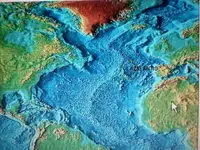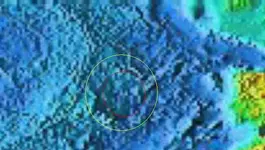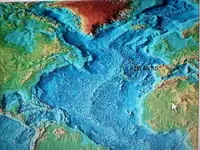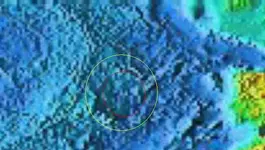WilliamTheFinder wrote:
I like to compare and contrast evidence for troy with evidence for Atlantis, because Troy is usually offered up as a location dismissed as mythical that was subsequently found, but Qadesh works as well.
Troy is an interesting parallel, for there have been accusations that Homer invented it, much the same as the accusations against Plato.
Do you know of any pre-Homeric source to verify the story {edit}
existence of Troy? Thank you in advance,
Schliemann did not simply find the location of legendary Troy - he also found Mycenae, and un-earthed gold death-masks there. Did you know that Schliemann also found a piece of evidence pointing to Atlantis too?
WilliamTheFinder also wrote:
point is, you're welcome to believe anything you want about whether the flood story in Gensis is the flood that wiped out Atlantis, or whether the book of the dead "actually" describes survivors of the lost continent. These cannot be proved by the analysis of legend. <snip>...I am saying that I can't find an incidence of an island with any remote resemblance to Atlantis in name or detail that sank even within a thousand years of Plato's given date occurring within the confines of one other source.
Thank you for your candor and tolerance. I would qualify your first statement there, adding a bit to read
"In my opinion, these cannot be proved by the analysis of legend." for you have excluded them in your own reasoning. Your second statement "
I can't find an incidence of an island with any remote resemblance to Atlantis" is precisely what one would expect to result, when you restrict your parameters to Plato alone, and insist on accepting every detail given - even though we can show at least
reason to suspect that some parts of the tale have been 'embellished'; which is not to say that these details were
not true and accurate descriptions of a city, but that perhaps these details have been 'borrowed' from another civilization that was destroyed in a catastrophe. A simile would be if one were to describe the empire of Napoleon, but add into it the technologies or architecture of America circa 2000, and then go try to find this empire as described.
It cannot be found as described, because a part of the story has been "borrowed" from a later and different culture. From a time-distance of say a thousand years later, someone reading about this Napoleonic empire complete with a White House, Statue of Liberty, Mount Rushmore, Golden Gate bridge etc might not be able to instantly recognize which parts of the story had been grafted on, and I believe this is the case with Plato's Atlantis. We could imagine this hypothetical future reader might know of such ruins being found in America, yet since they date to a different time and are in a different location, it leaves him puzzled and still casting about for the adulterated Napoleonic empire complete with a Mount Rushmore. For the sake of argument however if you prefer to restrict the sources to Plato alone, and insist on including every detail as a point to measure for deciding if a place is "Atlantis" I have no problem with it. Heck I would love to be proven wrong, and have someone find a place that fits Plato's description exactly in every detail.
Don Jose', Dueno de Real e Minas de Tayopa wrote:
You basically remind me of that beautiful Golden Trout that I last caught on ultra ligth gear. He could easily have broken free if he had had a definite path to follow but in the end he ended up in my frying pan despite running here and there with the hook (subject) in his mouth.
So it is with you , my friends, you will in the end admit that Atlantis has almost certainly been found. You will make a few runs here and there, but ultimately ----
An interesting analogy amigo, however one must know when to 'set the hook' and what is just a nibble.
 Without some kind of evidence that your proposed location of Atlantis was once above sea level
Without some kind of evidence that your proposed location of Atlantis was once above sea level, it is simply an interesting submarine geologic formation. I am still waiting for that evidence amigo, and look forward to seeing it. Not to diminish your theory, but one could as well propose that Greenland is Atlantis, however without some evidence that it must have been relatively ice-free somewhere near the correct time period, the theory remains equally un-proven. Spartel Island has a better claim than the mid-ocean location pinpointed, in that at least it was above sea level in the correct time period, though it is submerged today. So..... any evidence that your location was above sea level at or near the correct time period amigo?

For that matter, was it ever above sea level? I know that virtually all of the continents have been below sea level and much of the sea floors have been above sea level at some point over the billions of years, but if that region has never been above sea level - how could it be Atlantis?
I am going to go out on a limb here and say that
I don't believe the entire group of islands sank or subsided, possibly only the capital city and lowlands/coastal areas. The other tantalizing clue given by Plato, that the islands could be used like 'stepping stones' to cross the Atlantic,
may well be the strongest clue he gave. There are islands that have been used like 'stepping stones' for the purpose of crossing the Atlantic. These still-existing islands ought to lead to the location of Atlantis, whether submerged or above water today. (Proclus hints that
most of the islands still existed, as in the passage
"...the inhabitants of it...preserved the remembrance from their ancestors of the immeasurably large island of Atlantis which had really existed there and which for many ages had reigned over all islands in the Atlantic sea and which itself had like-wise been sacred to Poseidon." If the islands were
all submerged, how could there be any "inhabitants' preserving any remembrance? Diodorus also reports surviving descendants of Atlantis who warred with the also supposedly mythical Amazons, but places them on the continent, suggesting that they had been colonists there or perhaps fled there.)
Herodotus informs us that the god Poseidon originates in Africa, and it is in Africa we find the Atlas mountains and the 'Atlantes' people. If Atlantis had conquered all of (coastal) Africa up to Egypt, is it not logical that some survivors might have retained some of their religious beliefs?
(***Side note - in another translation of the
Oera Linda, the sunken island is spelled "Altland, or as the navigators call it Atland". It includes a story about a group of people who sailed off in search of some part of the island that they believed would not be submerged.*** Of course Oera Linda could be a complete fraud, which makes the stories moot.)
Good luck and good hunting amigos, I hope you find the treasures that you seek.
Oroblanco



 Without some kind of evidence that your proposed location of Atlantis was once above sea level, it is simply an interesting submarine geologic formation. I am still waiting for that evidence amigo, and look forward to seeing it. Not to diminish your theory, but one could as well propose that Greenland is Atlantis, however without some evidence that it must have been relatively ice-free somewhere near the correct time period, the theory remains equally un-proven. Spartel Island has a better claim than the mid-ocean location pinpointed, in that at least it was above sea level in the correct time period, though it is submerged today. So..... any evidence that your location was above sea level at or near the correct time period amigo?
Without some kind of evidence that your proposed location of Atlantis was once above sea level, it is simply an interesting submarine geologic formation. I am still waiting for that evidence amigo, and look forward to seeing it. Not to diminish your theory, but one could as well propose that Greenland is Atlantis, however without some evidence that it must have been relatively ice-free somewhere near the correct time period, the theory remains equally un-proven. Spartel Island has a better claim than the mid-ocean location pinpointed, in that at least it was above sea level in the correct time period, though it is submerged today. So..... any evidence that your location was above sea level at or near the correct time period amigo?  For that matter, was it ever above sea level? I know that virtually all of the continents have been below sea level and much of the sea floors have been above sea level at some point over the billions of years, but if that region has never been above sea level - how could it be Atlantis?
For that matter, was it ever above sea level? I know that virtually all of the continents have been below sea level and much of the sea floors have been above sea level at some point over the billions of years, but if that region has never been above sea level - how could it be Atlantis?



